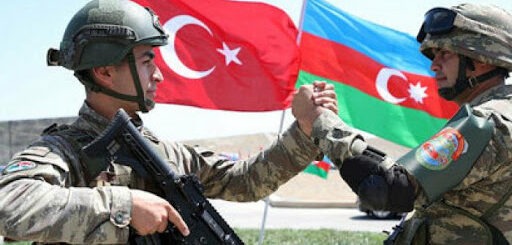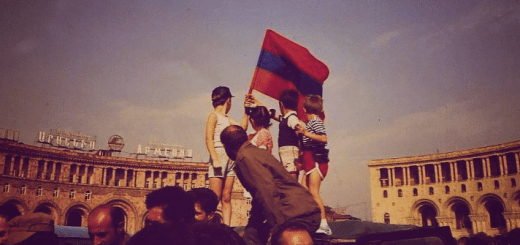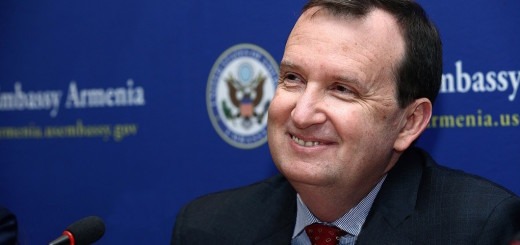Political Victory over Azerbaijan Is as Important as the Military Victory
While Armenians around the world have been justifiably focusing on the successes of the Armenian military over Azerbaijan during the three-day attack last month, the political victory is just as important.
If you win the war, but lose the peace, then you have not accomplished much. The best solution is to win the war and then draw a long-term benefit from that military success.
Fortunately, Pres. Ilham Aliyev of Azerbaijan has provided the best opportunity for Armenians to benefit from the recent skirmish on the border between the two countries.
Aliyev recently fired his long-term Foreign Minister Elmar Mammadyarov for engaging in “meaningless” negotiations with Armenia. This is the best thing that Aliyev could have said from the Armenian point of view. If Aliyev is unhappy with the negotiations, Armenians welcome his statement.
We should remember that the ongoing negotiations between Armenia and Azerbaijan, under the guidance of the Minsk Group of mediators, are solely for the benefit of Azerbaijan which expects to extract concessions from Armenia on the Artsakh (Nagorno-Karabagh) conflict. Armenians should not expect to gain anything from these negotiations. They have already accomplished what they want from the conflict with Azerbaijan by successfully liberating the occupied territories of Artsakh. It is unrealistic to expect that Azerbaijan would someday acknowledge that Artsakh is an independent territory or a part of the Republic of Armenia. Therefore, these negotiations are useless for the Armenian side. They are only carried out for the sake of giving the appearance to the international public opinion that Armenians are not opposed to finding a peaceful, negotiated solution to the conflict. These negotiations are carried out more for propaganda purposes than for achieving concrete results.
However, Armenia continues to carry out these negotiations while Azerbaijan persists on using sharpshooters or periodic attacks on Artsakh and Armenia proper to kill and injure Armenian soldiers and civilians or damage Armenian properties.
I have tried to bring this problem to the attention of Armenia’s leaders in the past. I discussed this issue several years ago with Armenia’s Defense Minister, Seyran Ohanyan. I explained to him that Armenia should temporarily suspend the negotiations with Azerbaijan while the Azeri side was shooting on Armenian soldiers. Armenia should announce to the world that it believes in peaceful negotiations, but Azerbaijan continues to fire across the border. One cannot sit at the negotiating table while the other side is shooting at you. You either negotiate or fight. You cannot do both at the same time. The Defense Minister told me that this is a political decision which should be taken up with President Serzh Sargsyan. Ohanyan said that he was only involved in military matters.
I then met with President Sargsyan and gave him the same explanation that I had given to his Defense Minister. I emphasized that I was not calling for the cancellation of the negotiations with Azerbaijan which would have left the wrong impression on the international community. I urged the President to announce that even though Armenia believes in peaceful negotiations, Azerbaijan continues its warmongering actions. The world would understand that negotiations cannot be carried out under such circumstances. One can either negotiate or fight, but not do both. Therefore, the President of Armenia should announce that if Azerbaijan, henceforth, shoots on the Armenian side, Armenia would suspend the negotiations for three months. If the Azeri shootings persist, Armenia would prolong the suspension of negotiations. Without any negotiations taking place, Azerbaijan would be the loser, as negotiations are Azerbaijan’s only chance of getting some concessions from Armenia. Eventually, as the negotiations become frozen for a lengthy period, the Minsk Group of negotiators would pressure Azerbaijan to agree to observe a total ceasefire if it wanted to continue the negotiations.
Regrettably, I could not convince Pres. Sargsyan to agree to this peaceful approach. As a result the Azeri shootings continued during the negotiations while dozens of young Armenian and Azeri soldiers were killed.
Nevertheless, I was happy to read sometime after my meeting with Pres. Sargsyan that he had announced on Oct. 24, 2017, during his lecture at the Armenian National Defense Research University, according to Mediamax Armenian news agency, that “You either negotiate or shoot, and we are ready for both cases.” He was also quoted as saying that the negotiations should be held only in case of mutual trust, built by adhering to ceasefire regime, while any provocations may block the process.
Unfortunately, Pres. Sargsyan had announced only partially what I had suggested. He had left out the warning to Azerbaijan that negotiations would be suspended the next time they shoot across the border.
Nevertheless, I believe that this is the right time for Armenia’s new leaders to consider my suggestion, especially since Pres. Aliyev had stated that he does not believe in “meaningless” negotiations. I was dismayed that Armenia’s Foreign Minister Zohrab Mnatsakanyan just announced that Armenia was ready to resume the negotiations with Azerbaijan, as if the attacks in early July had not taken place. The only time Azerbaijan would be deterred from carrying out new attacks on Armenia and Artsakh, if it pays a heavy price both militarily and diplomatically. Just to carry on as usual, ignoring the attacks, would be counterproductive. It would simply encourage Azerbaijan to continue shooting and shelling.
In the meantime, Armenians both in and out of Armenia have to set aside their internal differences and make all efforts to strengthen the Armenian military. This is no time to engage in internal dissensions at a time when our enemies, Azerbaijan and Turkey, are testing our resolve.







